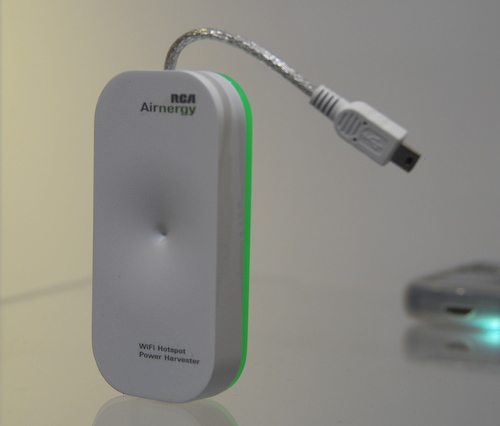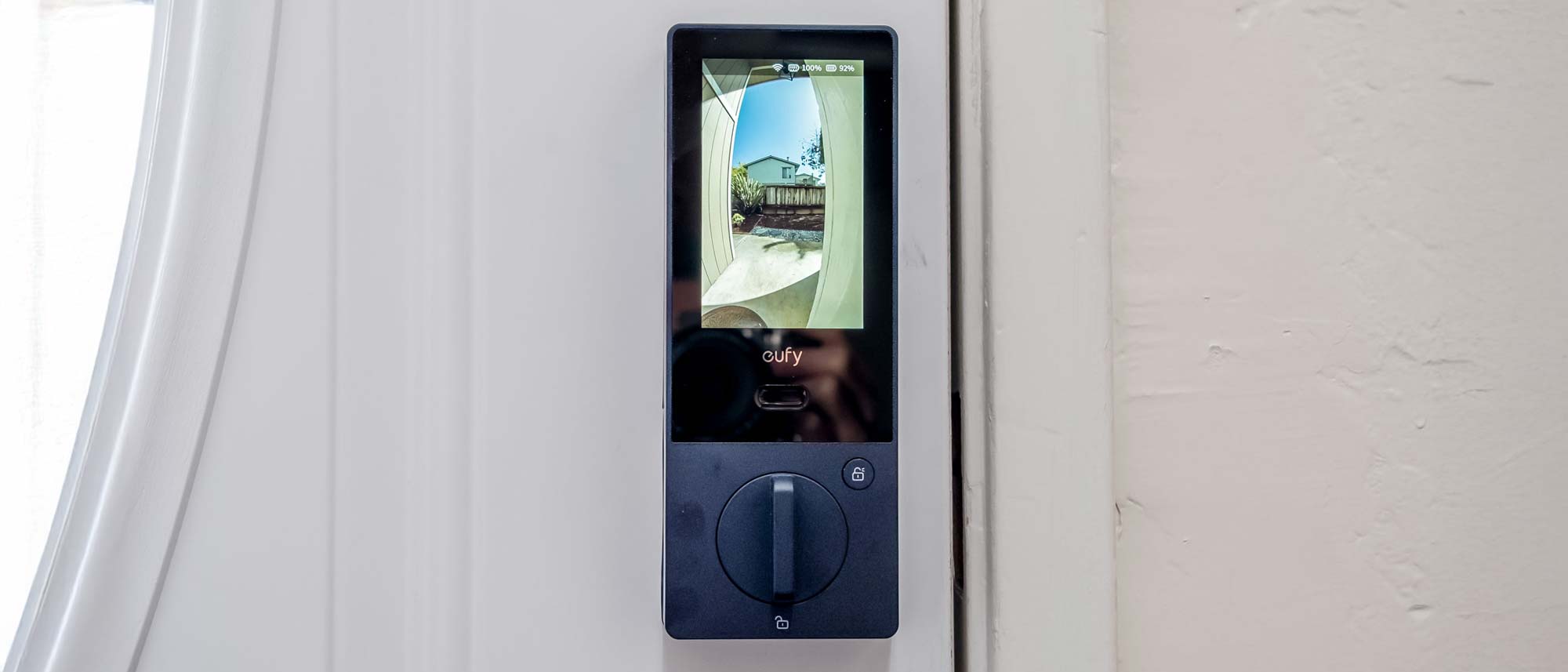RCA Charger Draws Electricity from Wi-Fi Signals
It's a gadget charger that draws its electricity from Wi-Fi signals.

OhGizmo apparently liked RCA's little Airnergy Charger gadget at CES 2010. Despite all the HDTVs, tablets and e-readers, this device was considered the "highlight" of the show. Why? Because it's a device charger that draws electricity from Wi-Fi signals. That's right: it generates a charge by pulling energy out of the air.
Although this type of device has appeared in a previous attempt, OhGizmo reports that RCA's version is actually able to harvest enough energy--with a high enough efficiency--to make it practical. During the presentation, RCA managed to re-charge a Blackberry smartphone from 30-percent to full in about 90 minutes. That's nothing speedy, but given that its yanked straight from the air, that's darn right impressive.
The rechargeable battery resides within the Airnergy device, and will automatically begin charging once it comes in contact with Wi-Fi signals. And unlike solar-based products, the Airnergy can be juiced up day or night as long as a Wi-Fi source is within reach. The battery's recharge speed depends on the proximity of the Wi-Fi hotspot: the further away from the source, the longer it takes for the battery to recharge.
The weird aspect about this device is that the Airenergy charger itself will hit the market this summer for $40, but the battery using the Wi-Fi harvesting technology won't be available until soon afterward. There was no indication on how much the battery will actually cost. We're hoping there's some kind of starter bundle that won't break the bank.
Sign up to get the BEST of Tom's Guide direct to your inbox.
Get instant access to breaking news, the hottest reviews, great deals and helpful tips.
Kevin started taking PCs apart in the 90s when Quake was on the way and his PC lacked the required components. Since then, he’s loved all things PC-related and cool gadgets ranging from the New Nintendo 3DS to Android tablets. He is currently a contributor at Digital Trends, writing about everything from computers to how-to content on Windows and Macs to reviews of the latest laptops from HP, Dell, Lenovo, and more.
-
zachary k good, solar sucks anyway. using solar chargers means being in the sun, and who wants to go out there? now i can stay inside more. but i would like to know something, would the amount of wi-fi make a diff? or is it just signal strength?Reply -
razor512 rags_20But won't the Wi-Fi connection be compromised?Reply
nope wifi is not effected as a transmitted signal can have an unlimited number of listeners, as long as they don't broadcast they wont hinder the signal for others.
they need to include this technology in all battery powered devices, it will be sure to increase the run time. -
mrmez Its pretty frikkin cool me thinks :)Reply
As said, miniaturise the device and design it to be able to pull power from cell/mobile phone towers too, then implement it in mobile phones etc.
Even a tiny charge running day and night would certainly make a huge difference to battery life. -
Regected Hmm, Nicola Tesla perfected this technology almost a century ago. He was able to drive a car around New York City from power being transmitted from inside his lab. Just goes to show new technology is not always a new idea.Reply
